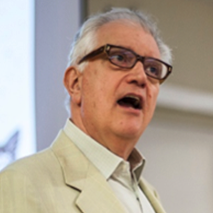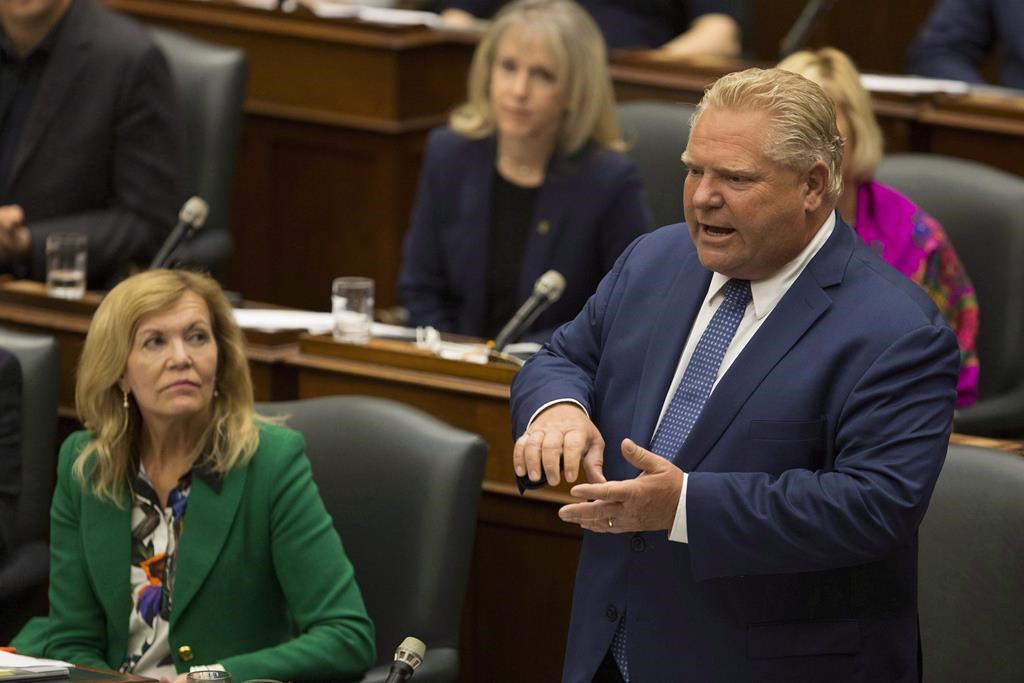“Wait! Don’t be fooled. She’s just a regular Malibu Stacy with a stupid, cheap hat. She still embodies all the awful [aspects] she did before.”
—“Lisa vs. Malibu Stacy,” The Simpsons, season five, episode fourteen
New Ontario Liberal leader Steven Del Duca is promising to bring ranked ballots to provincial politics if his party forms government next spring. But such a reform offers only minuscule improvement at best, threatens to send third parties into electoral oblivion, is premised on a disingenuous rationale (if not an outright lie), and is more about feathering the Liberals’ nest than improving democracy.
At the Ontario Liberals’ annual general meeting this past Sunday, Del Duca promised to change the type of ballot used in elections, as a “first step” to purportedly enhancing the province’s democracy. With ranked ballots, rather than marking an “X” for only their favourite candidate, voters would instead rank the candidates in order of preference. It’s not clear if this proposed change would involve a referendum or simply be ushered in by legislation, but thus far it sounds like the latter.
Del Duca also claimed he would resign if he doesn’t implement the aforementioned ranked ballots during Ontario’s 43rd Parliament, and that Liberals would subsequently form a citizens’ assembly to gauge further democratic changes.
A Liberal party, temporarily banished to the political hinterlands of third-party status, making flowery offers regarding electoral reform. Where might we have heard this before, dear reader?
To Del Duca’s credit, he is refreshingly honest about which electoral system Liberals prefer, rather than the usual Grit tactic of being coy about such crucial details. And, at least thus far, it sounds like he’s promising to implement electoral reform without delay, rather than stymie the process with a referendum intended to fail, as former Ontario Premier Dalton McGuinty did 14 years ago. However, if we’re being cynical – or perhaps realistic – there’s still time for Del Duca to acquire cold feet after getting elected and suggest a referendum would be needed after all, just as both Prime Minister Justin Trudeau and Quebec Premier François Legault did in recent years when they realized their reform promises threatened their respective routes to re-election.
But if Del Duca is being surprisingly open about which electoral system he intends to switch Ontario to, he’s not being honest about why.
The Ontario Liberals claim elections that use ranked ballots would foster greater civility and less vitriol – that politics would be characterized by consensus rather than conflict – because candidates would require more than just first-preference votes. In other words, candidates would have to appeal to as many voters as possible, even to those who prefer another candidate/party, to acquire enough second-preference votes. It would no longer be possible to get elected with just 40 percent of the vote, and thus the tone of politics would naturally become more cooperative.
Except for one problem: this claim is largely nonsense.
Admittedly, it’s true that ranked ballots can encourage politicians to tone down the toxicity – but only in non-partisan contests devoid of political parties, such as municipal council elections featuring independent candidates. However, Ontario’s provincial elections are partisan – they involve political parties – and that wouldn’t change with the adoption of ranked ballots.
The suggestion that Ontario’s rival parties would suddenly join hands and engage in a harmonious rendition of Kumbaya just because of ranked ballots is completely without basis. Just look at the Australian House of Representatives, which uses the electoral system Del Duca is proposing for Ontario: ranked ballots and single-member ridings, formally known as “instant-runoff voting.” Politics “Down Under” is arguably more acerbic than here in Canada. In fact, the United Kingdom’s Report of the Independent Commission on the Voting System from 1998 specifically noted that Australian “politicians tend to be, if anything, more blunt and outspoken than [their British equivalents]”. Note that Australia adopted this voting system way back in 1918; if 103 years hasn’t been long enough for ranked ballots to bring civility to Australian politics, perhaps it’s time to admit such claims are complete codswallop.
One positive outcome that ranked ballots would actually achieve for Ontario’s elections – oddly unmentioned by Del Duca – is the elimination of strategic voting. Ontarians would be liberated to support their favourite candidate without fear of “splitting the vote,” and no candidate/party would be too minor to vote for.
However, because ranked ballots would be paired with single-member ridings under Del Duca’s proposal, there would be no improvement to the diversity of Ontario’s legislature. In fact, the two largest parties would likely come to dominate even more. Of the 151 seats in Australia’s House of Representatives, two parties won all but six seats in the most recent federal election. That is even less proportional and more skewed than the first-past-the-post system currently used in Canada’s provincial and federal elections.
Instant-runoff voting makes it difficult even for large third parties to get elected in Australia, where the Greens only have one federal Member of Parliament, despite earning 10.4 percent of the vote in 2019. (Under a proportional system, they would have received 16 seats.) Make no mistake: like Ontario’s current voting system, Del Duca’s proposed instant-runoff voting is a “winner-takes-all” system that favours the status quo – and might actually make it worse.
So sure, with ranked ballots you could vote Trillium instead of Tory, or Moderate instead of Liberal, or Communist instead of NDP, or Go Vegan instead of the Greens, without having to worry about “wasting” your vote. But the reality is none of these smaller parties would come close to winning a seat under instant-runoff voting. In fact, if Australia serves as an example, even a larger third party – normally the NDP in Ontario – might struggle to retain official party status at Queen’s Park under such an electoral system.
(Strangely enough, when the British Columbia Liberals and Conservatives conspired to introduce ranked ballots for that province’s 1952 election in an effort to snuff out the rapidly-growing CCF/NDP, it was instead the Grits and Tories who inadvertently became the third parties, pulverized almost out of existence. Be careful what you wish for, Mr. Del Duca.)
Would getting rid of strategic voting really be worth Ontario having a less diverse Legislative Assembly? Do Ontarians really want to cram their four political parties into a voting system even less tolerant of multiple options? How would this possibly lead to better democratic outcomes, as Del Duca claims?
If adding ranked ballots to Ontario’s elections wouldn’t improve civility as the Ontario Liberals attest, and would actually make the Legislative Assembly less reflective of social diversity than it is now, it’s worth asking why Del Duca is pushing for this reform.
There are likely two reasons, in addition to trying to squeeze the Ontario NDP and Greens as mentioned above. First, Del Duca’s reform proposal presents him as an exciting reformist courageously confronting a bully, rather than a dull-as-dishwater technocrat. It’s an opportunistic ploy: last year, Doug Ford undemocratically quashed ranked ballots from Ontario’s municipal elections, so Del Duca hopes to portray Ford as the autocratic villain while presenting himself as the saviour restoring democracy – and extending such reforms to the provincial level. After all, successful politics requires you to define your opponent before they define you.
But the most likely reason is that an electoral system that captures voter preferences – rather than only their favourite option – is bound to favour a large, centrist party. A lot of Conservative, NDP and Green voters would mark the Liberals as their second preference, allowing the Liberals to win more seats than under the current first-past-the-post system.
In other words: this proposal is really about Liberal self-interest. Plus ça change…
Earlier this year, the Ontario Liberals conducted a policy survey called #TakeTheMic, meant to shape the party’s priorities ahead of the 2022 provincial election. According to the responses, adopting a system of proportional representation was more popular than adopting ranked ballots (instant-runoff voting), and yet Del Duca has chosen to ignore this advice, as proportional voting would likely deliver fewer seats to the Liberals.
Del Duca’s ranked ballots proposal is not about reinvigorating Ontario’s democracy. It’s about retaining a winner-takes-all status quo, and possibly further inflating the Liberals at the expense of third parties. It’s about getting back in power at Queen’s Park – and staying there.
Interestingly, during his speech this past weekend, Del Duca proactively attempted to disarm those who would rather see Ontario embrace a proportional voting system.
“Now, there are people who will say that [instant-runoff voting] is not a perfect solution, but the status quo is simply not serving people’s interests, and something needs to change.”
Those people are Ontarians, Mr. Del Duca. The same people who responded to your party’s recent policy survey, who you are now choosing to ignore because their answers didn’t align with your premeditated motives.
Del Duca is right on one thing: something needs to change. But by merely adding ranked ballots to Ontario’s elections, it’s barely a change at all. In fact, if Australia is any example, instant-runoff voting might further erode the province’s democracy.
Adopting ranked ballots might be a half-decent improvement for Toronto’s non-partisan city elections, but not for Ontario’s provincial elections contested by political parties. Del Duca disingenuously insists otherwise, which should make voters question whether they can trust him.
If the Ontario Liberals genuinely want to improve the province’s democracy, they should listen to the Ontarians who responded to their party’s policy survey and opt to champion proportional representation. Otherwise, they’re wasting our time by peddling the electoral reform equivalent of snake oil.
The views, opinions and positions expressed by columnists and contributors are the author’s alone. They do not inherently or expressly reflect the views, opinions and/or positions of our publication.








